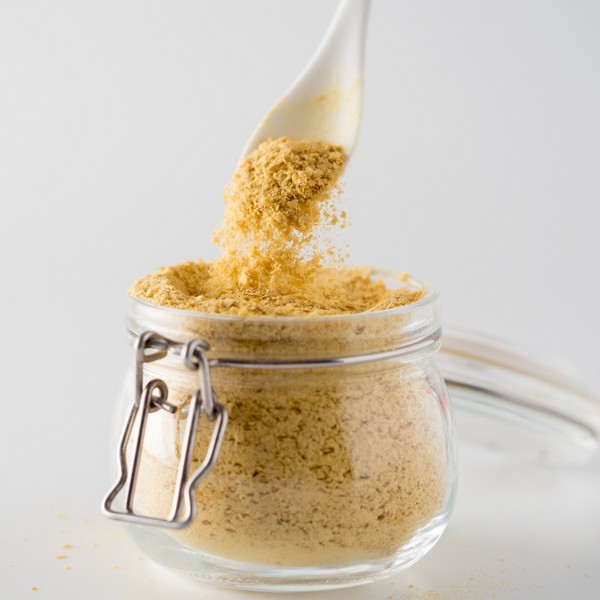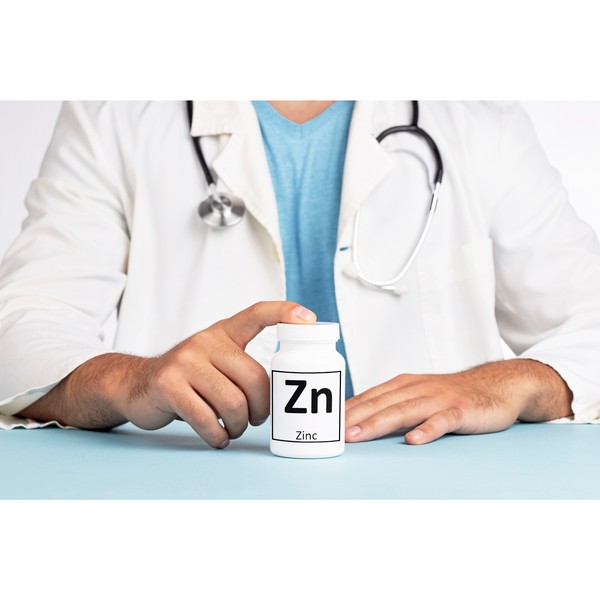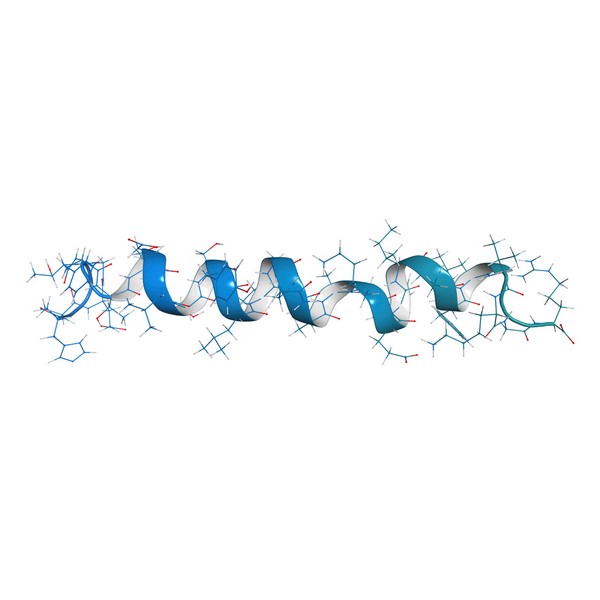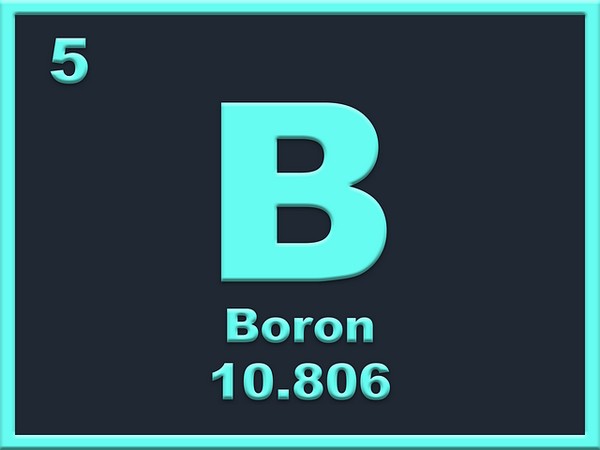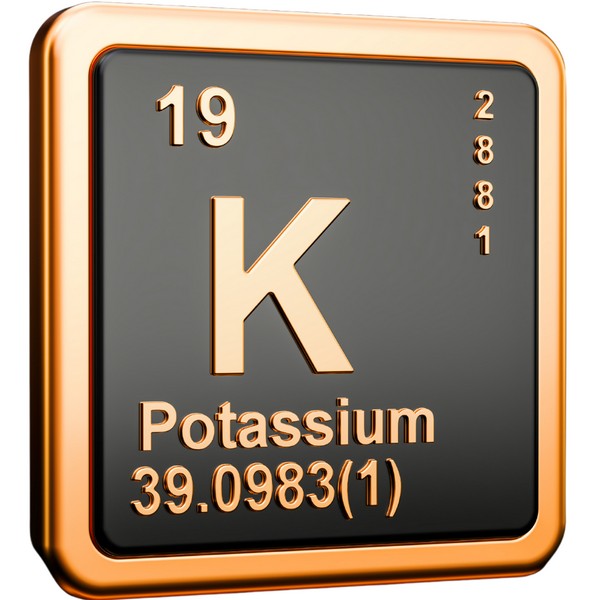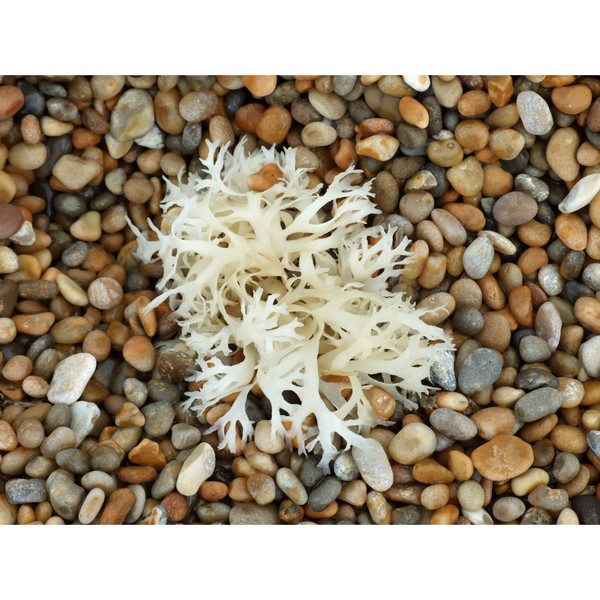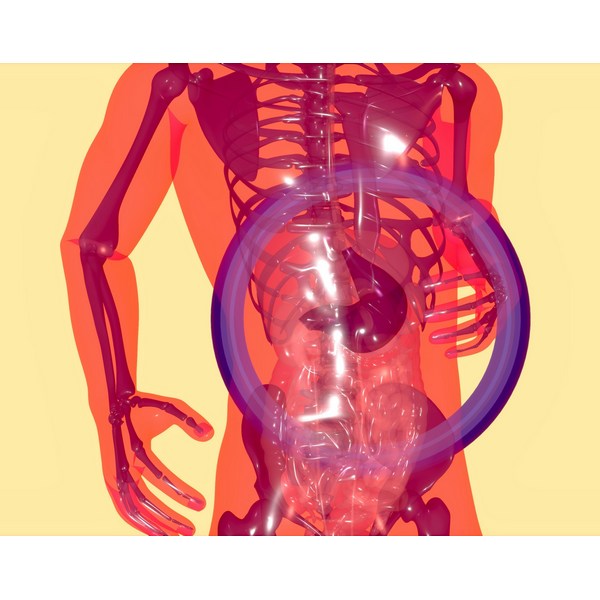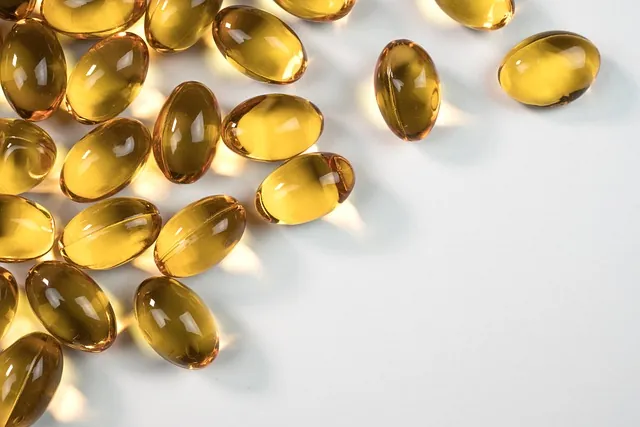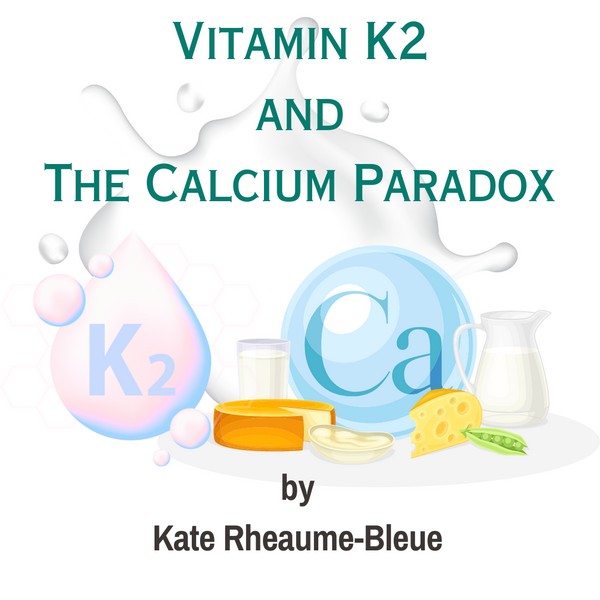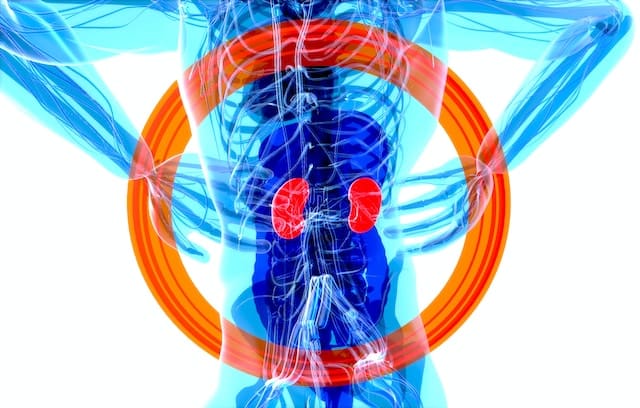Table of Contents
Within the vast universe of nutrition, trace minerals are the less-explored stars, pivotal in their roles despite their microscopic presence. They quietly preside over crucial biological processes, from healing your cuts and scrapes to energizing every cell of your being. Without them, the delicate balance of our bodily systems could easily falter, and understanding their importance is key to optimal health.
What are Trace Minerals?
Trace minerals, also known as micro minerals, are essential nutrients that play major roles in maintaining human health. Unlike macro minerals required by the body in larger amounts, trace minerals are needed in smaller quantities—usually just a few milligrams or micrograms daily.
They are crucial for myriad physiological processes including energy production, iron metabolism, and the synthesis of hormones and enzymes.
One cannot overlook the importance of trace minerals when considering overall well-being. They are indispensable for strong bone health, efficient immune function, and optimal brain function.
Moreover, they contribute significantly to wound healing, the formation of blood cells, and fetal development.
Examples of trace minerals include iron, which is vital for creating healthy blood cells; iodine, essential for thyroid hormone production; and zinc, necessary for immune system response and wound healing.
Despite their minute-required amounts, a deficiency in these minerals can lead to significant health issues.
Since the body cannot synthesize these elements, they must be ingested through a varied diet. Sources of minerals can range from dairy products to nuts, meats, vegetables, and grains.
For those unable to secure enough trace minerals from food alone, mineral supplements might be necessary to avoid potential deficiencies.
| Trace Mineral | Role in the Body | Common Dietary Sources |
|---|---|---|
| Copper | Iron regulation, Energy production | Liver, Shellfish |
| Iron | Blood cells production | Red meats |
| Iodine | Thyroid hormone synthesis | Seafood, Dairy products |
| Zinc | Immune function, wound healing | Shellfish, Dairy |
The Major Roles of Trace Minerals
Despite their necessity only in trace amounts, trace minerals are paramount for a broad spectrum of physiological functions. These essential nutrients facilitate a diverse range of biochemical reactions such as energy production, metabolism, nerve signal transmission, DNA synthesis, and tissue creation.
Their involvement in processes foundational for life cannot be overstated.
Many trace minerals like selenium, manganese, and copper act as antioxidants, playing a crucial role in negating the cellular damage caused by free radicals, thus preventing oxidative stress.
This antioxidative action is not only significant for the body’s overall health but also contributes to longevity and better disease resistance.
The regulation of important bodily substances such as insulin and blood glucose is another domain where trace minerals shine.
Adjustments in insulin and blood glucose levels have a direct influence on the body’s metabolic health, showcasing the trace minerals’ contribution to maintaining the body’s energy balance.
Zinc is crucial for reproductive health, supporting the immune system. Trace minerals affect hormone production, muscle contraction, blood oxygen transportation, and nerve/thyroid gland function.
These minerals anchor vital biological systems, optimizing body function.
Supporting Wound Healing
Healing relies on a range of nutrients, with trace minerals playing a leading role.
- Selenium aids thyroid health and accelerates wound healing through antioxidant enzyme production.
- Manganese enhances cellular health by supporting Mitochondrial Superoxide Dismutase.
- Silicon is crucial for bone, tissue, and collagen formation, directly impacting wound healing and skin elasticity.
- Copper strengthens the immune system and promotes effective wound closure.
Deficiencies in these minerals impair wound repair and increase vulnerability to complications. Adequate intake of trace minerals is essential for sustaining health and promoting regeneration.
Contributing to Energy Production
Trace minerals play pivotal roles in energy production within the body.
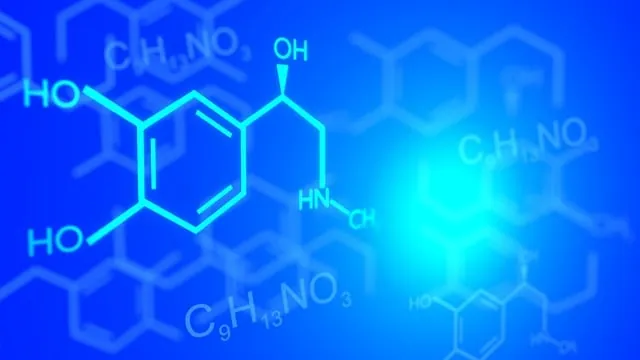
Copper facilitates enzymatic processes vital for converting food into energy. Additionally, copper is essential for heme synthesis, enabling oxygen transport in blood cells, a fuel for cellular energy production.
Boron contributes to insulin regulation and energy metabolism, underscoring the link between trace minerals and energy management. Chromium improves insulin efficiency, crucial for glucose metabolism and energy production.
Balanced trace mineral intake, including iron, zinc, copper, and selenium, is essential for maintaining a finely-tuned metabolism and efficient energy production, showcasing their influence on human physiology.
Essential for Iron Metabolism
Iron is crucial for health, especially as a component of hemoglobin which transports oxygen in blood. It also supports muscle function, tissue health, and brain development.
However, iron relies on copper for effective utilization and storage, highlighting the essential role of minerals in health.
Iron deficiency leads to anemia, a widespread issue, notably affecting women and individuals assigned female at birth due to menstruation.
Health guidelines suggest a daily iron intake of 18 mg for people older than four, with adjustments based on individual needs.
Aiding in Bone Health
Bones—the body’s framework—thrive on a collaborative support system of nutrients, including trace minerals. Evidence suggests that supplementary trace minerals can synergize with calcium to bolster bone density, especially in postmenopausal women.
Zinc is a standout, as it is known not only for halting bone loss but also for fueling collagen production, crucial for bone robustness.
These minerals’ role in balancing hormones provides an undercurrent of support for bone health. Their essential presence in muscle contraction and nerve function underlines the holistic contribution of trace minerals to musculoskeletal vitality.
Moreover, diets rich in potassium, indicative of a balance in trace mineral intake, are linked to a reduced risk of heart disease and stroke, positioning trace minerals as protectors of comprehensive health, bones included.
Sources of Trace Minerals

Trace minerals like chromium, silicon, selenium, iodine, and iron are found in an array of dietary options. Due to the decline in nutrient-rich soils and an upshoot in processed food consumption, the accessibility of these minerals in a standard diet necessitates more attention.
Chromium is a fine example of a trace mineral that assists in blood sugar regulation. It can be found in Brazil nuts, as well as high-quality cheeses.
To ensure a healthy dose of trace minerals, one should gravitate towards a diet rich in varied whole foods.
Foods such as liver and other organ meats are a powerhouse for many trace minerals, including selenium and iron, pivotal for myriad bodily functions.
Remember, it’s not just the presence of these minerals but also their absorption that matters. Factors such as phytic acid found in whole grains can inhibit mineral absorption.
Therefore, a balanced diet that considers these interactions is essential. The modern plate should increasingly feature foods rich in trace minerals to make up for what’s missing due to modern agricultural methods that have stripped essential nutrients from the soil.
Found in Dairy Products
Dairy products, rich in iodine, are crucial for thyroid health, aiding metabolism and growth. They also offer a bounty of minerals like calcium for bones and teeth, alongside zinc, selenium, and magnesium which enhance calcium’s benefits.
Further, dairy’s potassium supports muscle and metabolism, and selenium boosts DNA health and protects against damage.
For those avoiding dairy due to intolerances or dietary choices, finding alternative sources for these nutrients is essential.
Natural Sources of Trace Minerals
Fortunately, nature has provided an abundance of sources for these essential nutrients. Take, for instance, liver and other organ meats, whole grains, nuts, and certain hard cheeses, all teeming with minerals like chromium. Seawater, bearing a natural cocktail of trace minerals, is harnessed by various products that focus on mineral extraction, such as those utilizing the mineral-rich content from the Great Salt Lake.
Algae, often dubbed a superfood, contains an impressive profile of trace minerals, including the all-important silicon and selenium.
As a natural plant source, the concentration of these minerals in algae may fluctuate, ensuring a varied diet becomes even more crucial.
Deep colored fruits and vegetables, in their unprocessed forms, also house a bevy of these trace elements, thus incorporating a colorful palette on your plate goes a long way in securing your daily mineral needs.
Importance of Macro Minerals
The body needs macrominerals like calcium, potassium, and magnesium in larger quantities for vital functions including bone health, heart regulation, and muscle movement.
These minerals, along with trace minerals, are essential for the body’s complex functions and cannot be produced internally, requiring dietary intake.
The interplay between macro and trace minerals, such as magnesium’s role in activating vitamin D for calcium absorption, underscores the importance of a balanced intake of both for optimal health.
A nutrient-rich diet is key to preventing deficiencies and supporting the body’s functions.
Understanding and prioritizing both types of minerals through diverse food sources or supplements is crucial for overall health.
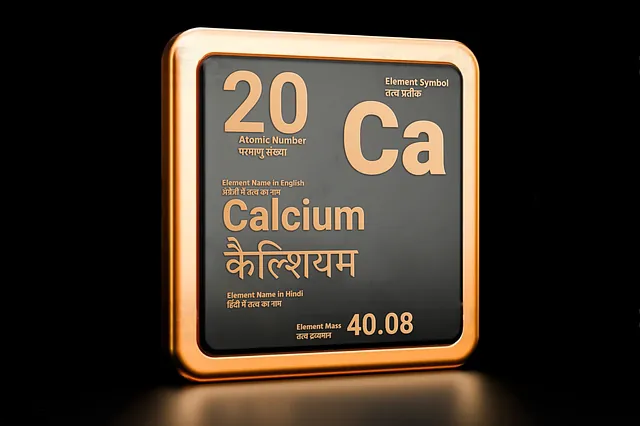
Deficiencies in Trace Minerals
Trace minerals are often absent in sufficient quantities in the modern diet due to industrial farming practices and food processing that strip nutrients from our foods.
When the diet lacks these essential elements, it can lead to significant deficiencies that impair the body’s ability to perform critical processes, including energy production, immune system support, cellular function, and metabolic regulation.
This shortfall can disrupt the delicate balance of bodily systems, as they are integral to enzyme functions and biochemical reactions.
Without these vital nutrients, our bodies may struggle with detoxification, challenge our natural waste elimination pathways, and expose us to a greater risk of chronic diseases.
The need to counteract these deficiencies is therefore not just a matter of enhancing health but crucial for averting significant health issues.
Effects on Human Health
Trace minerals, though small in quantity, are mighty in impact, influencing our immune system, hormone production, insulin management, and cell repair.
Their imbalance can affect our entire well-being, from bone health to brain function. Minerals like boron not only strengthen bones but also support cognitive and hormonal balance.
Research highlights trace minerals’ significant roles in preventing degenerative diseases, combating pollutants, and potentially managing aging-related conditions.
Imbalances, such as too little or too much copper or selenium, have been associated with heart issues, underlining the importance of regulated intake for overall health.
Examples of Trace Mineral Deficiencies

Copper deficit results in impaired immune function, leading to increased susceptibility to infections; difficulties with blood vessel and heart health, potentially resulting in cardiovascular complications; and challenges in maintaining healthy bones and connective tissues, which could affect overall skeletal integrity.
Iron deficiency causes issues such as anemia and fatigue.
Iodine deficiency leads to thyroid dysfunctions and developmental delays.
Selenium deficiency disrupts the production of crucial antioxidant enzymes, potentially compounding the threat to thyroid function and immune system robustness.
Chromium and manganese deficits can similarly alter metabolic performance, confound insulin sensitivity, and hinder both bone integrity and the body’s capacity to heal.
Symptoms of various trace mineral deficiencies can manifest as a constellation of issues including appetite changes, digestion problems, chronic fatigue, and a diminished cognitive state—symptoms often nebulous enough to be overlooked or misattributed.
Importance of Mineral Supplements
To combat common trace mineral deficiencies, supplements, especially those with fulvic acid that boost absorption, provide a viable remedy.
Proper levels of trace minerals are crucial for metabolism, bone and tooth health, immune efficiency, reproductive wellness, and cognitive function.
Nevertheless, caution must be practiced in supplementation to avoid an overabundance of minerals such as iron or calcium, which could give rise to a different spectrum of health concerns, including liver and heart disease or kidney stones.
As our food’s mineral content drops, supplements become crucial for addressing common deficiencies and improving overall health.
The Impact of Trace Minerals on Specific Health Conditions
Trace minerals like zinc, selenium, and boron are essential, playing a pivotal role in boosting immunity, enhancing brain function, and supporting cardiovascular health.
They activate crucial biochemical reactions, but must be ingested in proper amounts because the body can’t produce them.
Their critical roles in energy metabolism, insulin regulation, calcium metabolism, and as antioxidants, underscore their significant but often underestimated impact on health.
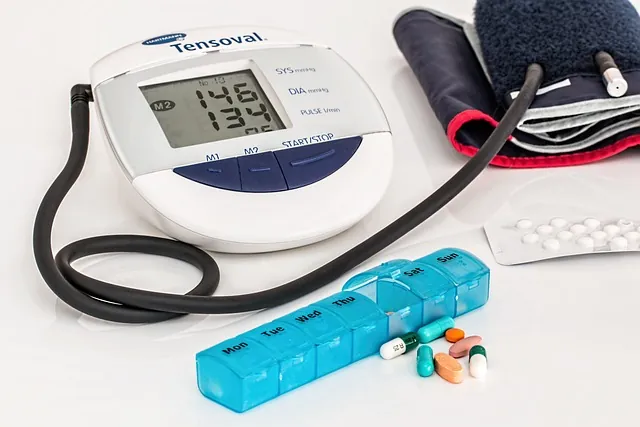
Cardiovascular Health
For heart health, small minerals play big roles. Zinc and selenium, for example, protect the heart from damage due to oxidative stress, which can lead to serious conditions like cardiomyopathy.
Research shows that low levels of these minerals can weaken the heart’s defense against damage. Adding minerals like chromium, copper, and selenium to your diet has been linked to better heart health, showing promise for managing heart disease.
Eating foods rich in potassium is also key for reducing the risk of heart disease and stroke, as it helps lower high blood pressure, a major risk factor for heart issues.
However, not getting the right balance of minerals can lead to heart problems, highlighting the importance of a balanced diet.
While there’s some debate about their effects, more research could help us understand how to best use trace minerals for keeping our hearts healthy and preventing disease.
Immune Function
Trace minerals like zinc, boron, and selenium are vital for our immune system. Zinc aids in many immune functions and acts as an antioxidant, while boron improves our body’s ability to fight oxidative stress.
Selenium, another powerful antioxidant, helps protect cells from damage.
Not getting enough of these minerals weakens our natural defenses, leaving us more vulnerable to illnesses. Boosting our intake of these key nutrients strengthens our body’s ability to ward off infections, keeping us healthy.
Brain Function
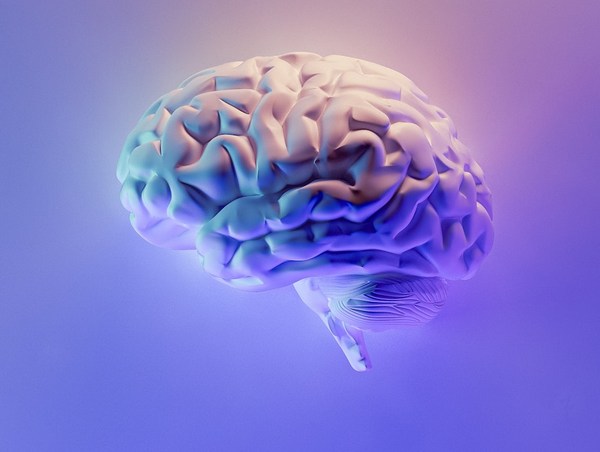
Trace minerals are crucial for cognitive health, improving mental clarity, reducing fatigue, and enhancing sleep. Zinc supports cognitive development and immune health, manganese is essential for brain function, and boron helps with hormone regulation and energy metabolism, all contributing to better mental performance.
A lack of these minerals can impair brain function, making it important to consume enough to keep our minds sharp and maintain both physical and mental health.
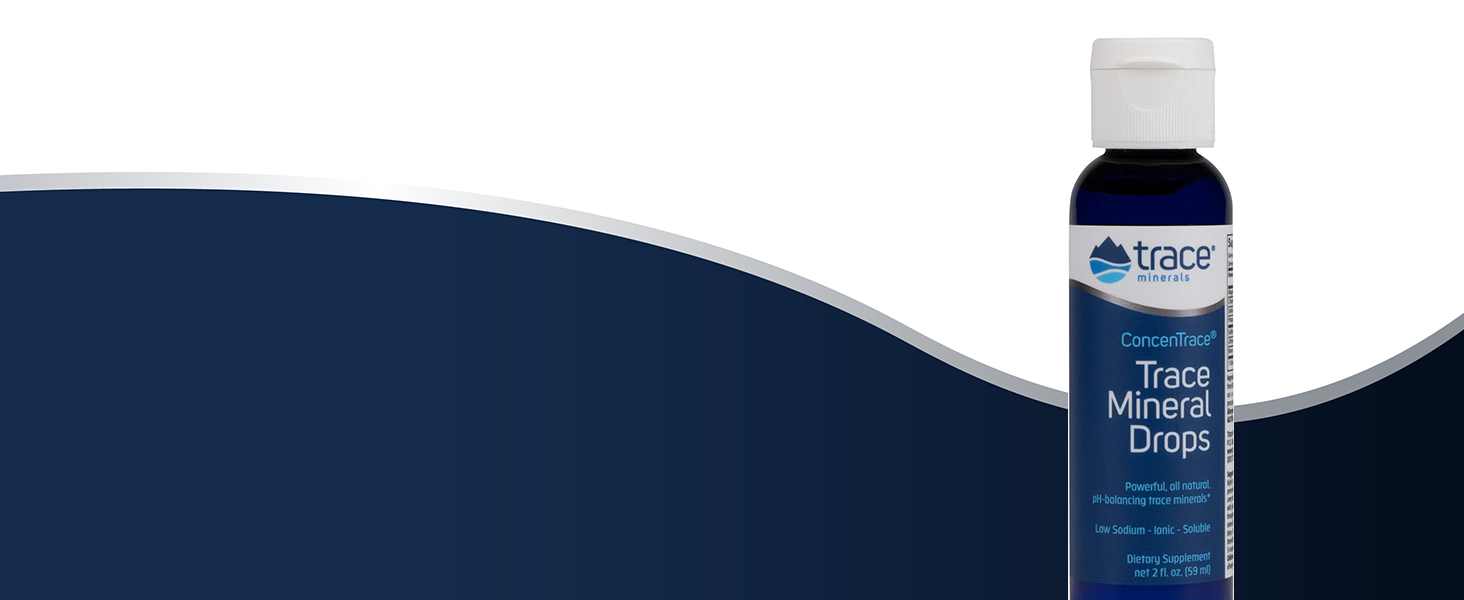
In conclusion, trace minerals play a crucial role in our overall health and well-being. These essential nutrients are vital for the proper functioning of our bodies, as they support important primal life functions.
From promoting strong bones and a healthy immune system to aiding in the production of energy and maintaining proper brain function, trace minerals offer a wide range of health benefits.
As humans are electrical beings, ensuring an adequate intake of trace minerals is essential for maintaining optimal health.
So, make sure to include a variety of trace mineral-rich foods in your diet and consider adding a high-quality trace mineral supplement if needed. Here’s to harnessing the power of trace minerals and promoting a thriving, vibrant life!
Frequently Asked Questions
What are trace minerals?
Trace minerals are essential nutrients that our bodies need in small amounts for various physiological functions. They include minerals like iron, zinc, copper, selenium, and iodine.
Why are trace minerals important for our health?
Trace minerals play a crucial role in maintaining overall health and well-being. They are involved in important processes such as immune function, metabolism, hormone regulation, and maintaining healthy bones, teeth, and skin.
How can we ensure adequate intake of trace minerals?
You can ensure adequate intake of trace minerals by maintaining a balanced diet that includes a variety of nutrient-rich foods. Good sources of trace minerals include lean meats, poultry, seafood, legumes, nuts, seeds, whole grains, and fruits and vegetables. Additionally, it may be beneficial to consult a healthcare professional or registered dietitian for personalized guidance on meeting your specific trace mineral needs.
Research Aliasgharpour M, Rahnamaye Farzami M. Trace Elements in Human Nutrition: A Review. Int J Med Invest 2013; 2 (3) URL: http://intjmi.com/article-1-141-en.html Angelova, M., Asenova, S., Nedkova, V., Koleva-Kolarova, R. (2011) Copper in the human organism, Trakia Journal of Sciences, 9(1): 88-98. Apon, A., and Kamble, P. (2019) Role of trace mineral in periodontal health: a review. Clinical Trials in Degenerative Diseases, [online] 4(2), p.30. https://doi.org/10.4103/2542-3975.260960. Bowen, H. J. M. (1976) Trace Elements in Biochemistry, 2nd ed. London: Academic Press Castillo-Durán, C., and Cassorla, F.. "Trace Minerals in Human Growth and Development" Journal of Pediatric Endocrinology and Metabolism, vol. 12, no. 5, 1999, pp. 589-602. https://doi.org/10.1515/JPEM.1999.12.5.589 Food and Nutrition Board, Institute of Medicine, National Academy of Sciences. (2001) Dietary Reference Intakes for Vitamin A, Vitamin K, Arsenic, Boron, Chromium, Copper, Iodine, Iron, Manganese, Molybdenum, Nickel, Silicon, Vanadium, and Zinc, Washington, DC: National Academy Press. Freeland-Graves, J. H., Sanjeevi, N., & Lee, J. J. (2015). Global perspectives on trace element requirements. Journal of Trace Elements in Medicine and Biology, 31, 135-141. https://doi.org/10.1016/j.jtemb.2014.04.006 Gaffney-Stomberg, E. The Impact of Trace Minerals on Bone Metabolism. Biol Trace Elem Res 188, 26–34 (2019). https://doi.org/10.1007/s12011-018-1583-8 Godswill, A. G., Somtochukwu, I. V., Ikechukwu, A. O., & Kate, E. C. (2020). Health Benefits of Micronutrients (Vitamins and Minerals) and their Associated Deficiency Diseases: A Systematic Review. International Journal of Food Sciences, 3(1), 1–32. https://doi.org/10.47604/ijf.1024 Hambidge, M. (2003). Biomarkers of Trace Mineral Intake and Status. The Journal of Nutrition, 133(3), 948S-955S. https://doi.org/10.1093/jn/133.3.948S Kodama, H., Fujisawa, C. (2009) Copper metabolism and inherited copper transport disorders: Molecular mechanisms, screening, and treatment, Metallomics, 1(1): 42-52. Linder, M. C., Wooten, L., Cerveza, P., Cotton, S., Shulze, R., Lomeli, N. (1998) Copper transport, American Journal of Clinical Nutrition, 67(5): 965S-971S. Mohammadifard, N., Humphries, K. H., Gotay, C., Mena-Sánchez, G., Salas-Salvadó, J., Esmaillzadeh, A., Ignaszewski, A., & Sarrafzadegan, N. (2019) Trace minerals intake: Risks and benefits for cardiovascular health, Critical Reviews in Food Science and Nutrition, 59:8, 1334-1346. DOI: 10.1080/10408398.2017.1406332 https://pubmed.ncbi.nlm.nih.gov/29236516/ Osredkar, J., Sustar, N. (2011) Copper and zinc, biological role and significance of copper/zinc imbalance, Journal of Clinical Toxicology, S3: 1-18. Roger, M. (2011) The Minerals You Need, USA: Safe Goods Publishing, p 21. Saltman, P. D., Strause, L. G. (1993) The role of trace minerals in osteoporosis., Journal of the American College of Nutrition, 12:4, 384-389, DOI: 10.1080/07315724.1993.10718327 https://pubmed.ncbi.nlm.nih.gov/8409100/ Tako, E. (2019). Dietary Trace Minerals. Nutrients, 11(11), 2823. https://doi.org/10.3390/nu11112823 Tsugutoshi. (2004) Copper deficiency and the clinical practice, Japan Medical Association Journal, 47: 365-370. Underwood, E. J. (1981) The incidence of trace element deficiency diseases Phil. Trans. R. Soc. Lond. B2943–8 http://doi.org/10.1098/rstb.1981.0085 Uauy, R., Olivares, M., Gonzalez, M. (1988) Essentiality of copper in humans, Journal of Clinical Nutrition, 67(5): 952-959. Vural, Z., Avery, A., Kalogiros, D. I., Coneyworth, L. J., & Welham, S. J. (2020). Trace Mineral Intake and Deficiencies in Older Adults Living in the Community and Institutions: A Systematic Review. Nutrients, 12(4), 1072. https://doi.org/10.3390/nu12041072 Noushin, Mehri, Aliasgharpour. (2019) Trace Elements in Human Nutrition (II) – An Update. International Journal of Preventive Medicine 11(1):p 2, | DOI: 10.4103/ijpvm.IJPVM_48_19 https://pubmed.ncbi.nlm.nih.gov/32042399/ National Research Council, Food Nutrition Board. (1980) Copper. In: Recommended Dietary Allowances, Washington, DC: NRC/NAS, p151-154. Aoki, T., Yamaguchi, Y., Shimizu, N. (1996) Copper deficiency and its treatment from the point of view of copper metabolism in the body, Pediatrics of Japan, 37: 317-329. Jeremias, C. T., David, L. B., Royden, J. (2006) Severe ataxia, myelopathy, and peripheral neuropathy due to acquired copper deficiency in a patient with history of gastrectomy JPEN, Journal of Parenteral and Enteral Nutrition, 30: 446-450. Takagi, Y., and Okada, T. (2001) Metabolism of trace elements. Japanese Journal of Clinical Medicine 59(extra issue): 401–412. (in Japanese)
Creatine Myths Debunked: Separating Fact from Fiction
Key Takeaways Common myths about creatine, such as it causing kidney damage, weight gain, and being a steroid, are widespread but unsupported by scientific evidence….
Bee Pollen: Nature’s Secret Superfood
Key Takeaways Bee pollen is packed with essential nutrients and offers numerous health benefits. It supports immune function, boosts energy, and promotes overall well-being. Adding…
Protein: You probably need more
Key Takeaways Protein is needed for building and repairing body tissues. It supports muscle growth, immune function, and hormone production. Bioavailable sources of protein include…
How Collagen Supports Healthy Skin, Joints, and More
Key Takeaways Collagen is the most abundant protein in the body, supporting the structure of skin, bones, and connective tissues. It helps maintain skin elasticity,…
Liver: 5 Surprising Benefits Backed by Science
Hold on! Don’t run away! You need to read this. Liver is a highly nutritious organ meat that is often overlooked in modern diets. Packed…
The Impact of Ultra-Processed Foods on Your Wellbeing
Every bite we take is a step toward either wellness or illness. In our fast-paced world, ultra-processed foods have become a staple, silently shaping our…
L-Glutamine and Gut Health: Benefits and Side Effects
Key Takeaways L-Glutamine is essential for gut health. Benefits include improved digestion and reduced inflammation. Potential side effects are rare but can occur in high…
Red Palm Oil: Unveiling The Potent Health Benefits
Struggling to find the right oil for your health and kitchen? Red palm oil is packed with nutrients that might just be what you need….
Whole Food Vitamin C Complex: Expert Tips for Health
Key Highlights Whole food vitamin C complex is essential for a strong immune system and overall health. Unlike synthetic ascorbic acid, whole food vitamin C…
13 Most Dangerous Foods Revealed
Key Highlights Fugu, or pufferfish, is one of the most poisonous foods in the world, with its organs containing a neurotoxin that can paralyze motor…
Silica: for Healthier Skin, Hair, and Nails
Key Takeaways: Silica supports strong and healthy skin, hair, and nails. It promotes bone health by boosting collagen production. Silica helps improve joint flexibility and…
Vitamin A (Retinol): Essential Nutrient for Health
Key Takeaways: Natural Vitamin A, also known as Retinol, is crucial for vision, immune function, and skin health. Retinol is essential for healthy vision, particularly…
Benefits of Nutritional Yeast
Key Takeaways Nutritional yeast is a rich source of vitamins and minerals. It supports immune function and promotes skin health. Its cheesy flavor makes it…
5 Major Benefits of Omega-3 Fatty Acids
Key Takeaways Omega-3 fatty acids support heart health by reducing triglycerides and lowering blood pressure. They play an important role in brain function and development,…
Zinc Supplements: Risks and Dangers
Key Takeaways Zinc supports immunity, wound healing, and cell growth. High zinc supplement doses can cause health problems. Always consult a healthcare provider before taking…
5-HTP: Natural Ways to Boost Serotonin and Improve Mood
Key Takeaways: 5-HTP is a natural compound that helps boost serotonin levels in the brain. It can support mood regulation, sleep improvement, and stress reduction….
Carnivore Diet: Benefits, Risks, Food List & More
Key Takeaways The carnivore diet is a keto diet that only allows for animal-based foods, and has potential health benefits. Tips for success include hydrating,…
Keto Diet 101: A Complete Beginner’s Guide
Key Highlights The ketogenic diet is a low-carb, high-fat diet that can lead to weight loss and has many health benefits. By reducing carbohydrate intake…
L-Carnitine: Benefits, Dosage, and Side Effects
Key Takeaways L-Carnitine supports fat metabolism and energy production. Benefits include enhanced exercise performance and improved heart health. Proper dosing minimizes potential side effects. Understanding…
Trimethylglycine TMG: Betaine Anhydrous Explained
Key Takeaways Betaine Anhydrous (TMG) is a compound found naturally in various foods and offers several health benefits. TMG supports liver health by reducing fatty…
ALA vs. DHA & EPA Omega-3: Why Source Matters
Key Takeaways ALA (Alpha-Linolenic Acid) is found in flaxseeds, chia seeds, and walnuts, but converts poorly to DHA and EPA. DHA and EPA are critical…
6 Best Natural Ways to Manage Your Blood Sugar: A Quick & Easy Guide
1. Intermittent fasting2. Exercise3. Dietary fiber4. Sleep5. Weight loss6. SupplementationBioclinic NaturalsPGX BiotiquestSugar Shift Every time you eat it, it’s plotting something sinister. Sugar isn’t as…
Healthy Fat: is Butter Better?
Key Takeaways Saturated fats, like those found in butter, may not be as harmful as once thought and can be part of a healthy diet….
What You Need to Know About Salt and Your Health
Table of ContentsThe Health Benefits of Unrefined Sea SaltElectrolyte BalanceMineral ContentImproved HydrationBoosted Energy LevelsImmune SupportImproved DigestionBalanced pH LevelsReduced Water RetentionHeart Health SupportStronger Bones and TeethEnhanced…
Berberine Has 11 More Incredible Benefits Than You Thought
Berberine is a compound found in several plants that has been used for centuries in traditional Chinese medicine and Ayurveda. It has recently gained popularity…
Allulose: The Best Sugar Alternative
Key Takeaways Allulose is a low-calorie sweetener found naturally in some fruits. It does not raise blood sugar levels, making it suitable for diabetics. Allulose…
Spirulina: Health Benefits and Uses
Key Takeaways Spirulina boosts immune function with its high nutrient content and antioxidant properties. Rich in proteins and essential vitamins, enhances overall nutrition. Helps reduce…
Eggs: A Comprehensive Guide
Key Highlights Eggs are a nutritional powerhouse, containing all the essential vitamins and minerals needed for overall health. Vital role in a balanced diet, providing…
Increase GLP-1 Agonists Naturally
Key Takeaways: GLP-1 agonists regulate appetite, insulin production, and blood sugar levels. Regular exercise and quality sleep maintain optimal GLP-1 levels. High-protein, low-carb diets effectively…
How Stabilized Rice Bran Supports Digestive & Heart Health
Key Takeaways – Stabilized rice bran is a nutrient-rich source of vitamins, minerals, and antioxidants. – The stabilization process prevents rancidity, making it a long-lasting…
Actual Superfoods: Real Foods You Should Be Eating
Key Takeaways Superfoods are nutrient-dense foods, offering essential vitamins, minerals, and fats. Prioritize high-quality sources for optimal nutrition. They support overall health, boost energy, and…
Boron: Benefits of a Lesser-Known Mineral
Key Takeaways Boron is a trace mineral with significant health benefits. It supports brain function, bone health, and hormonal balance. Understanding boron’s role can improve…
Medium Chain Triglycerides (MCTs): Uncovering 5 Health Benefits
This potent, natural source of energy has gained considerable attention in recent years for its impressive array of benefits. MCT oil is a versatile addition…
Potassium: Benefits & Sources
Key Takeaways Potassium is essential for regulating fluid balance, nerve signals, and muscle function. It supports heart health and helps maintain proper blood pressure. Adequate…
Iron Overload: Symptoms & Prevention Tips
Key Takeaways: Iron overload happens when the body absorbs excessive iron, which can damage organs. Common symptoms include fatigue, joint pain, and skin changes. Early…
Vitamin E Complex
Key Takeaways Vitamin E is a powerful antioxidant that protects cells from oxidative damage, reducing the risk of chronic diseases. The vitamin E complex includes…
Do This! The Ultimate Guide to Fasting Safely and Effectively
In our increasingly busy lives, finding time to take care of our bodies can often take a backseat. One method that has gained attention recently…
Benefits of Sea Moss Explained
Key Takeaways Rich in Nutrients: Sea moss is packed with essential vitamins, minerals, and antioxidants, supporting overall health and wellness. Supports Immune Function: Its high…
Copper: Little-Known Health Benefits
Key Takeaways Copper is an essential trace mineral with benefits, including ceruloplasmin production, energy production and antioxidant properties. Copper is critical for brain health by…
Natural Treatment for Irritable Bowel Syndrome (IBS): Effective Remedies Explored
Understanding IBSSymptoms of IBSRole of Diet in IBSNatural Remedies for IBSSupplements for IBSRole of Probiotics in IBSFrequently Asked Questions Understanding IBS Irritable Bowel Syndrome (IBS)…
Is Eating Sugar Really That Bad For Your Health?
Should You Really Be Concerned? In short, YES! Thank you, that’s all folks, and do have a good evening. Seriously though, extensive research has established…
Postbiotics: What They Are and Why They Are Important
Key Takeaways Postbiotics 101: They’re beneficial by-products from probiotics that consume prebiotics Boosts Immunity: Postbiotics sharpen your immune system, helping fight off pathogens and reducing…
CoQ10: What Is It and Why Is It Important?
Key Takeaways CoQ10 (Coenzyme Q10) is an antioxidant produced by the body, essential for energy production in cells. Levels of CoQ10 naturally decrease with age…
Cholesterol Misconceptions: Separating Fact from Fiction
Key Takeaways: High inflammation and blood pressure are major risk factors for heart disease. Cholesterol is vital for hormone production, cell membrane structure, and digestion,…
TUDCA Benefits for Health
Key Takeaways TUDCA promotes liver health, aiding cell protection and repair. Enhances digestion by improving bile flow and supporting gut health. May protect brain health…
How Cod Liver Oil Can Transform Your Health and Wellness
Cod liver oil has been used for centuries as a natural remedy for various health conditions. Packed with essential nutrients and fatty acids, cod liver…
8 Key Signs of Nutrient Deficiency
Key Takeaways Magnesium: A multitasker that aids in over 300 biochemical reactions in the body. Copper: Supports neurological function, cardiovascular and immune system health, iron…
Conjugated Linoleic Acid (CLA): Benefits & Sources
Key Takeaways CLA is a type of fatty acid found primarily in animal products like beef and dairy. Known for potential benefits such as weight…
Magnesium: Better Sleep, Stress Relief and More
Tallow: Benefits, Uses, and Nutrition
Key Takeaways: Tallow is a nutrient-rich animal fat with many practical uses. It contains valuable vitamins such as A, D, E, and K. Tallow is…
Calcium Supplements: What You Need to Know
Key Takeaways Calcium supplements have been linked to heart disease and kidney stones. Excess calcium from supplements can lead to imbalances and health issues. Natural…
Taurine: The Mighty Amino Acid for Optimal Health
Key Takeaways Taurine supports heart health, regulates blood pressure, and reduces oxidative stress. Essential for muscle function, brain health, and cognitive function. Aids in insulin…
Grains & Legumes Secretly Harming Your Health? Find Out Now!
Key Takeaways: – Grains and legumes contain antinutrients like lectins and phytic acid, which can interfere with nutrient absorption. – These foods may trigger digestive…












